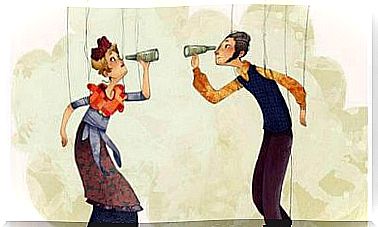McClelland’s Theory Of Needs

McClelland’s theory of needs, also known as the three needs theory, acquired needs theory, motivational needs theory, and even learned needs theory, is a motivational model that tries to explain how the needs for success, power, and belonging affect people. people’s actions in the context of business management.
In the early 1940s, Abraham Maslow created his theory of needs. This theory identified the basic needs that human beings have, in order of importance: physiological needs, security needs, belonging needs, recognition and self-fulfillment.
Two decades later, David McClelland based this work on his book The Achieving Society . In this publication, McClelland identified three motivators that he believed to be present in all people: the need for achievement, the need for belonging, and the need for power.
People would have different characteristics depending on their dominant motivator. According to McClelland’s theory of needs, these motivators are learned. This is why this theory is often called learned needs theory.
Dominant motivators in needs theory
McClelland said that regardless of our gender, culture or age, we all have three dominant motivators, and one of them will be our main motivator. This main motivator depends a lot on our culture and life experience.

The three dominant needs identified by McClelland in needs theory are:
- Need to succeed: People whose dominant motivator is the need to succeed have a strong drive to set and achieve challenging goals. They are great people to take calculated risks to achieve their goals. In addition, they also like to receive regular feedback on their progress and victories. They like working alone better.
- Need to belong: People whose main motivator that drives them is the need to belong are characterized by wanting to belong to a group. For them, collaboration prevails over competence. Furthermore, they don’t like challenges that are accompanied by high risks and what produces uncertainty in life. They are also people who want to be liked and tend to agree with what the rest of the group wants to do.
- Need for power: People whose dominant motivator is the need for power are characterized by wanting to control and influence others. It is wonderful for these people to win arguments and arguments. In addition, they are competent and skilled, and generally have status and recognition.
Next, we’ll look at more details, this time applied to a business context.
The use of McClelland’s theory of needs
From a business management point of view, McClelland’s theory of needs can help identify the dominant motivators of people who are part of a team and thus contribute to improving decision-making and goal-setting processes. feedback, as well as the administration of incentives and rewards.
These motivators can also be used to divide the work according to the characteristics of each team member to achieve greater effectiveness.
need for success
The need to succeed is the need to be successful at what the person does. It is this need that drives her to work and even fight for the goal she wants to achieve. People who have high-income needs always work to stand out, particularly avoiding these situations:
- Low risk and low reward
- Hard to reach and with a high risk
Individuals motivated by the needs of success often have a strong desire to set difficult goals and stick to them. Their preference is to work in a results-oriented work environment and they always appreciate any feedback about their work.
People who build on success often take calculated risks to reach their goals, and this can apply to both low-risk and high-risk contexts. It depends on the possible rewards. They usually prefer to work alone. This personality type believes in a hierarchical structure mainly derived from achievements based on hard work.
When it comes to feedback, people motivated by success need a fair and balanced assessment. They want to know what they are doing well, what they are doing poorly and where and how they can improve.
need to belong
The need for belonging is a person’s need to have interpersonal and social relationships with other people or with a particular set of people. These people always seek to work in groups, creating friendly and lasting relationships.
In addition, they have a great need to feel loved by others. They like to collaborate with others and generally avoid situations of high risk and uncertainty.
Individuals motivated by the needs of belonging within the theory of needs feel good when their surroundings, including the group itself, provide signs of belonging.
They like to spend their time socializing and maintaining relationships, and they have a strong desire to be loved and accepted. These people stick to the basics and don’t have a great need to change things, mostly out of fear of being rejected.
These people tend to adhere to workplace norms and culture, and generally don’t try to change them for fear of rejection. Collaboration is the way of working for them, competence remains secondary. These people work effectively in roles based on social interactions, such as service positions in direct contact with the customer.
When giving group feedback, it is important for them and for the motivation that there is also a personal, individual appreciation. It is important to emphasize how the person lived up to expectations and the trust that was placed in them. Also, keep in mind that these people often don’t stand out, so it’s best to talk to them in private.

need for power
The need for power speaks to the degree of desire a person may feel to maintain control, be the authority over other people, and influence and change their decision according to their own abilities and desires.
The need to improve their self-esteem and reputation drives these people, who want their views and ideas to be accepted and implemented at the expense of the views and ideas of others.
These people, if they have enough skill to satisfy their desire, tend to become strong leaders. Furthermore, they may belong to two groups: that of personal power motivators or that of institutional power motivators. If they belong to the first group of personal power motivators, they will need to control others. Rather, an institutional power motivator will seek to lead and coordinate a team toward an objective.
In either case , competence motivates them and they love to win arguments. Status and recognition is something that brings motivation, as is being the leader of a winning team.
They are disciplined and expect the same from their teammates and team. The feedback to these power-motivated people should be pretty straightforward. In addition, their income can be boosted in companies that help them achieve their professional aspirations.
Comparative theories
There is another theory similar to McClelland’s theory of needs: Sirota’s three-factor theory. Sirota’s three-factor theory also proposes three motivating factors that are similar. They are: equity or impartiality, camaraderie and achievements.
An important difference between Sirota’s theory and McClelland’s theory of needs is that, according to Sirota, everyone starts a new job with enthusiasm and motivation, wanting to do it well. Over time, poor company policies or any other adverse conditions cause employees to lose their motivation at work. In turn, McClelland’s theory states that a transversal motivator constitutes an invaluable stimulus for workers.









